Filter by
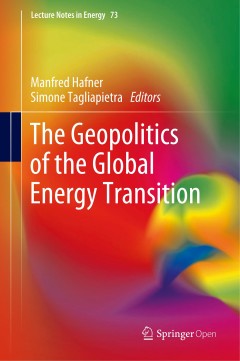
The geopolitics of the global energy transition
The world is currently undergoing an historic energy transition, driven by increasingly stringent decarbonisation policies and rapid advances in low-carbon technologies. The large-scale shift to low-carbon energy is disrupting the global energy system, impacting whole economies, and changing the political dynamics within and between countries. This open access book, written by leading energy…
- Edition
- -
- ISBN/ISSN
- 9783030390662
- Collation
- xxv, 381p. : ill.
- Series Title
- -
- Call Number
- 327 GEO g
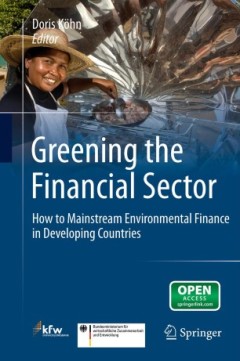
Greening the financial sector : how to mainstream environmental finance in de…
Given the manifold challenges of financial sectors in developing and transition countries, one might be tempted to believe that embarking on “green” finance is not a priority for financial systems development. However, there are a number of arguments against this view. Environmental finance, particularly energy efficiency and renewable energy (EERE) finance, can and should serve as an inter…
- Edition
- -
- ISBN/ISSN
- 9783642050879
- Collation
- xiv, 249p. : ill.
- Series Title
- -
- Call Number
- 332.1 GRE g
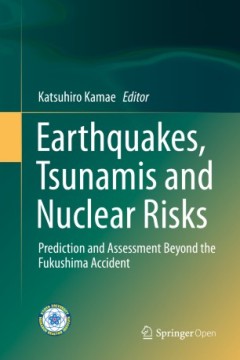
Earthquakes, tsunamis and nuclear risks : prediction and assessment beyond th…
This book covers seismic probabilistic risk assessment (S-PRA) and related studies which have become more important to increase the safety of nuclear facilities against earthquakes and tsunamis in the face of the many uncertainties after the Fukushima accident. The topics are (1) Active faults and active tectonics important for seismic hazard assessment of nuclear facilities,(2) Seismic source …
- Edition
- -
- ISBN/ISSN
- 9784431558224
- Collation
- xii, 177p. : ill.
- Series Title
- -
- Call Number
- 621.4835 EAR e
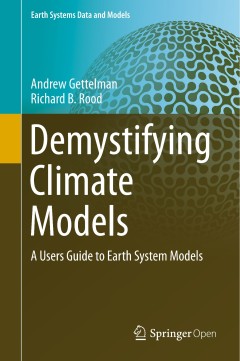
Demystifying climate models : a users guide to earth system models
This book demystifies the models we use to simulate present and future climates, allowing readers to better understand how to use climate model results. In order to predict the future trajectory of the Earth’s climate, climate-system simulation models are necessary. When and how do we trust climate model predictions? The book offers a framework for answering this question. It provides readers…
- Edition
- -
- ISBN/ISSN
- 9783662489598
- Collation
- xvii, 274p. : ill.
- Series Title
- -
- Call Number
- 551.6015118 GET d

Design science and its importance in the German mathematics educational discu…
This ICME-13 Topical Survey reviews the state-of-the-art by first exploring the roots and scope of design science. Second, it presents two examples of current design science projects that focus on substantial learning environments including a student and a teacher perspective. Subsequently, the book elaborates on how empirical research can be conceptualised within design science. Lastly, it exp…
- Edition
- -
- ISBN/ISSN
- 9783319435428
- Collation
- vii, 43p. : ill.
- Series Title
- -
- Call Number
- 510.71 DES d
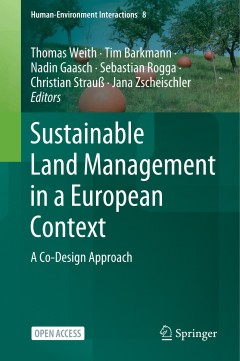
Sustainable land management in a European context : a co-design approach
This open access book present and discuss current issues and innovative solution approaches for land management in a European context. Manifold sustainability issues are closely interconnected with land use practices. Throughout the world, we face increasing conflict over the use of land as well as competition for land. Drawing on experience in sustainable land management gained from seven y…
- Edition
- -
- ISBN/ISSN
- 9783030508418
- Collation
- ix, 347p. : ill.
- Series Title
- -
- Call Number
- 333.73 SUS s
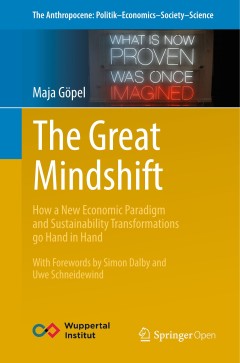
The great mindshift : how a new economic paradigm and sustainability transfor…
Sustainable development is the 21st Century’s wicked problem. After 40 years into this agenda have reversed only few unsustainable trends we hear the call for a paradigm shift, transformation, radical change or system innovations in order to finally change course. But what does this actually mean? And how do we put it into practice? This book describes the path ahead. It combines system tr…
- Edition
- -
- ISBN/ISSN
- 9783319437668
- Collation
- xxiii, 184p. : ill.
- Series Title
- -
- Call Number
- 338.927 GOP g
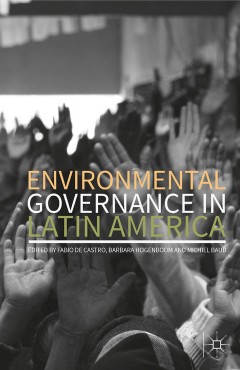
Environmental governance in Latin America
The multiple purposes of nature – livelihood for communities, revenues for states, commodities for companies, and biodiversity for conservationists – have turned environmental governance in Latin America into a highly contested arena. In such a resource-rich region, unequal power relations, conflicting priorities, and trade-offs among multiple goals have led to a myriad of contrasting initi…
- Edition
- -
- ISBN/ISSN
- 9781137505729
- Collation
- xii, 338p. : ill.
- Series Title
- -
- Call Number
- 333.7098 ENV e
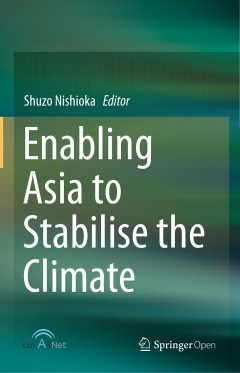
Enabling Asia to stabilise the climate
This book presents good practices in Asia and ASEAN countries for effectively promoting advances in response to climate change, which can help to achieve sustainable development in Asia and around the world. As a proposal, the aim is to influence the discussions at COP 21 by providing a positive agenda with concrete actions from an Asian perspective. The book is divided into three parts. Part 1…
- Edition
- -
- ISBN/ISSN
- 9789812878267
- Collation
- x, 270p. : ill.
- Series Title
- -
- Call Number
- 338.927 ENA e
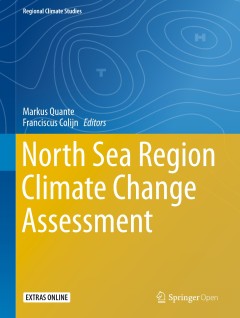
North Sea region climate change assessment
This book offers an up-to-date review of our current understanding of climate change in the North Sea and adjacent areas, as well as its impact on ecosystems and socio-economic sectors. It provides a detailed assessment of climate change based on published scientific work compiled by independent international experts from climate-related disciplines such as oceanography, atmospheric sciences, m…
- Edition
- -
- ISBN/ISSN
- 9783319397450
- Collation
- xlv, 528p. : ill.
- Series Title
- -
- Call Number
- 363.73874 NOR n
 Computer Science, Information & General Works
Computer Science, Information & General Works  Philosophy & Psychology
Philosophy & Psychology  Religion
Religion  Social Sciences
Social Sciences  Language
Language  Pure Science
Pure Science  Applied Sciences
Applied Sciences  Art & Recreation
Art & Recreation  Literature
Literature  History & Geography
History & Geography